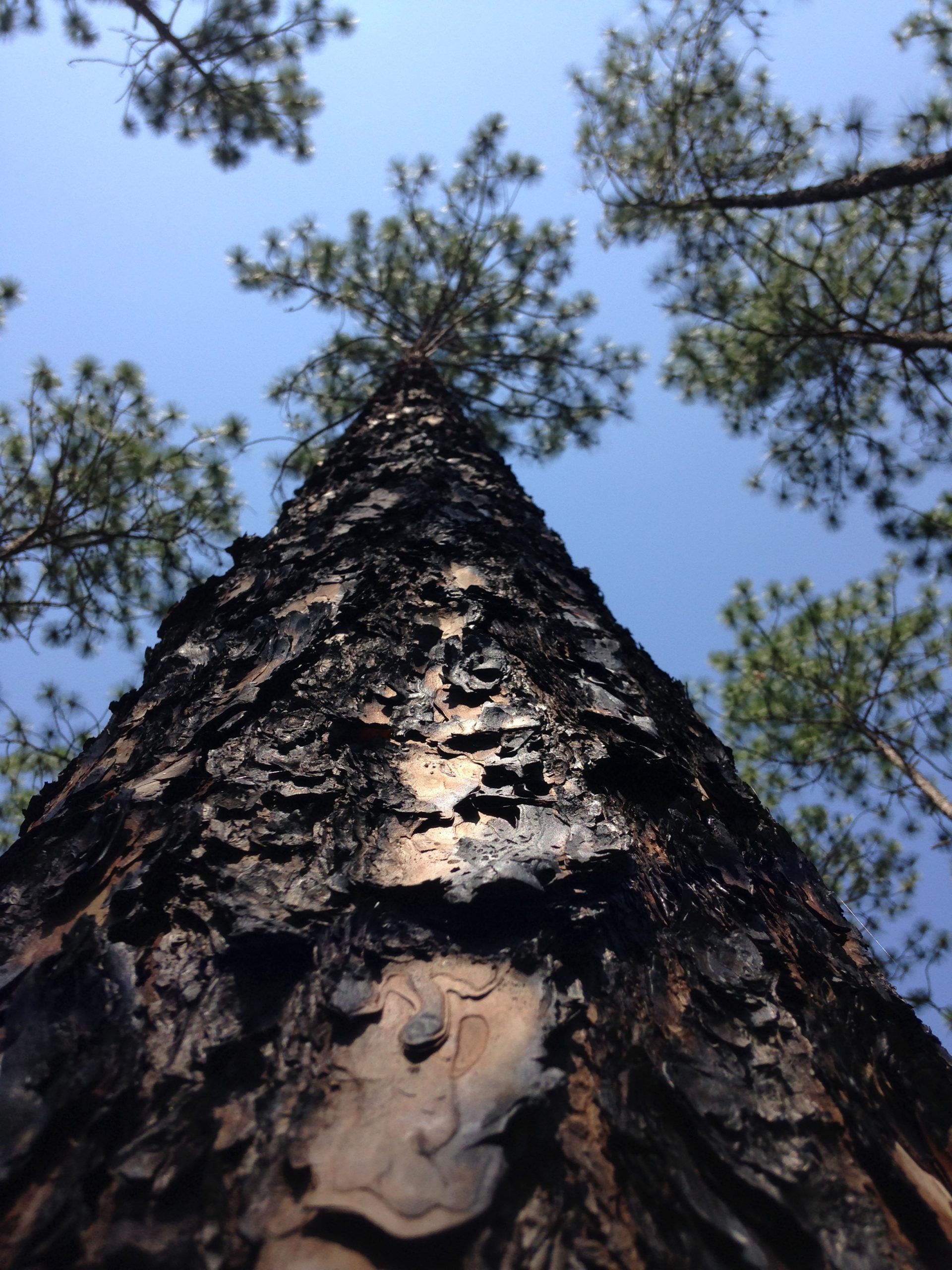Post contributed by Becky Barlow, Forestry Extension Specialist, Alabama Cooperative Extension System & Professor, Auburn University College of Forestry & Wildlife Sciences

Photo by Becky Barlow.
Occasionally I meet people and the conversation goes something like this
Other Person: “So what to do you?”
Me: “I work as a Forestry Extension Specialist for the Alabama Cooperative Extension System.”
Other Person: “Cooperative Extension? What is that?”
Me: “My job is to teach landowners, professionals and the general public about forestry land management, and to help them with forestry-related questions they might have. Were you ever in 4-H? Or have you heard of 4-H?”
Other Person: “Oh yeah! I was in the one with the chickens when I was a kid, it was so much fun!”
Me: “4-H is the youth part of Cooperative Extension. So, I am a bit like the adult version of 4-H for forestry and natural resources!”
Extension and Outreach make up one of the three land-grant university missions. For Auburn University, Alabama A&M, and Tuskegee University this mission is fulfilled largely by the Alabama Cooperative Extension System (ACES). ACES provides research-based educational information and programs for everyone across Alabama in the areas of agriculture; economic and community development; family and consumer sciences; forestry, wildlife, and natural resources; 4-H and youth development; and urban affairs. You can find out more about ACES online at www.aces.edu.
There is an ACES office in each county. In these offices, there are County Extension Agents who coordinate office staff and activities. These agents may have specialties like livestock management, horticulture and home grounds, forestry and wildlife, family and consumer sciences, etc. There are other agents also located in these offices with differing specialties. They serve the county in which they are housed and a set of about 7-12 counties in the surrounding area. These are called Regional Extension Agents. For forestry, wildlife and natural resources we have 7 Regional Extension Agents located across the state. These professionals organize workshops, develop publications and newsletters, videos, and answer questions about forestry and wildlife issues in their region of Alabama. These services are provided at low to no cost to the public. To find the Regional Extension Agent who works in your area check out our meet the team page.
Extension Specialists (like me) may also work in any of the professional areas listed above, but they often are housed at Alabama A&M or Auburn University and are affiliated with a university college or department. Specialists work closely with Regional Extension Agents to conduct workshops and write extension publications. They also answer questions from the public. There are six Forestry and Wildlife ACES Extension Specialists housed within Auburn University’s College of Forestry and Wildlife Sciences. Their specialties include things like forestry, wildlife, invasive species management, timber harvesting. Contact information for ACES Extension Specialists and staff that are housed within Auburn University’s College of Forestry and Wildlife Sciences can be found at this link https://sfws.auburn.edu/extension-faculty/.
When it comes for forestry, wildlife and natural resource information there are other groups that ACES professionals sometimes partner with to help landowners meet their land management goals. Some of these groups include state agencies, private consulting foresters, and arborists.

Public and private experts can help you find the best ways to manage and protect your land’s natural resources. Photo by Becky Barlow.
State agencies employees work for a public agency such as ACES, but there are other state agencies that can also help you with your land management decisions. These include the Alabama Forestry Commission (http://www.forestry.state.al.us/ ), Alabama Department of Conservation and Natural Resources (https://www.outdooralabama.com/ ), and USDA Natural Resources Conservation Service (https://www.nrcs.usda.gov/wps/portal/nrcs/site/al/home/ ). These agency employees provide services at no charge or reduced rate for things such as 1) timber tract assessment, 2) insect and disease assessments, 3) management plan development, 4) prescribed fire plans, 5) wildlife management and habitat development, and 6) can help landowners find contractors or consulting foresters to carry out management activities.
Private consulting foresters assist landowners for a fee and provide services such as 1) timber tract assessment, 2) management plan development, 3) timber sales, 4) American Tree Farm System certification, and 5) contractor location assistance. These individuals represent the landowner in all efforts and work to help them achieve land management goals. Some states require that they be registered with a State Registration Board. Alabama has this requirement. More information about Alabama’s Registered Forester program can be found at this link http://www.asbrf.alabama.gov/.
Finally, homeowners and landowners may need individual tree removal or assessment assistance. In this case, an arborist is needed. To find a certified arborist who can help you make decisions about the health and maintenance of trees around your home or other buildings visit http://www.treesaregood.org/findanarborist.
If often takes a team of professionals to help landowners and homeowners answer their forestry, wildlife, or other natural resource questions. Any of the groups highlighted in this article will be ready and willing to help when you need them. And, if they are not able to assist you directly, they will help you find the right professional for your needs.




